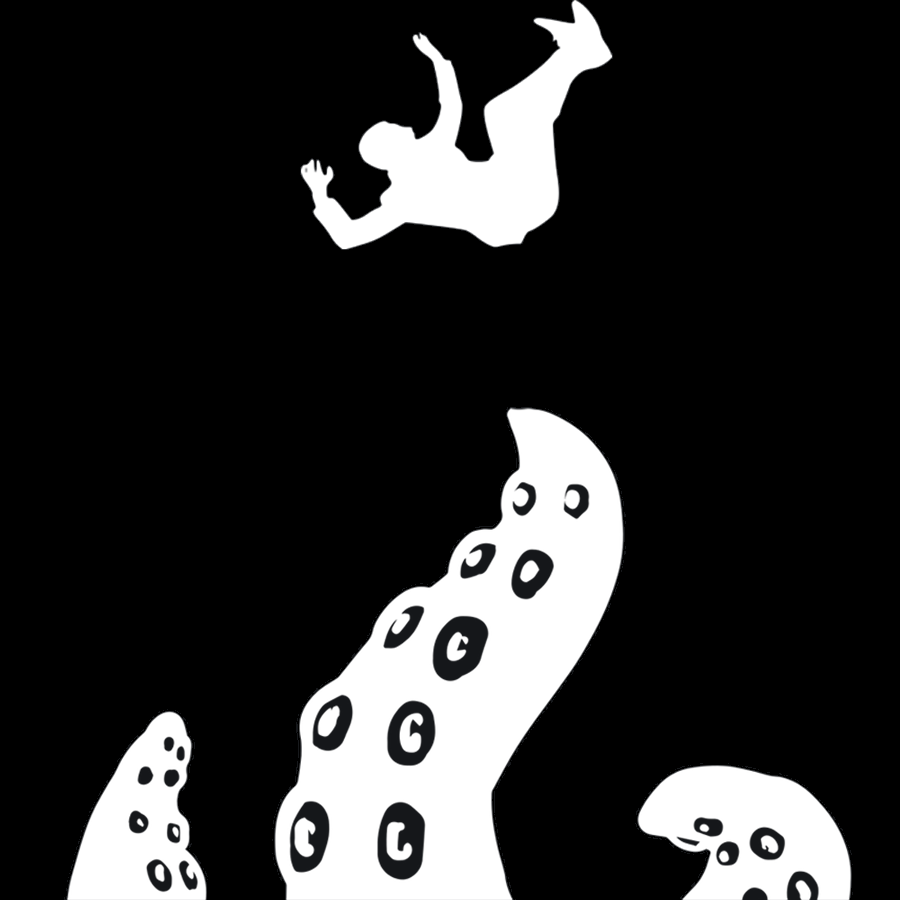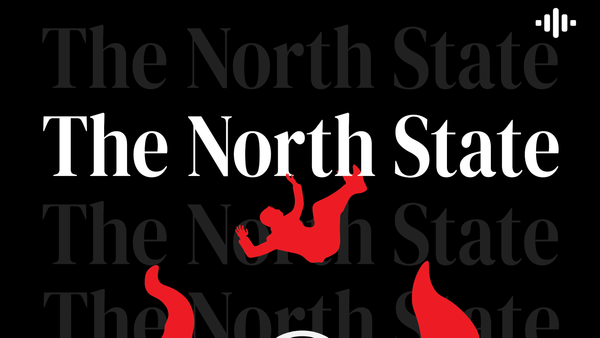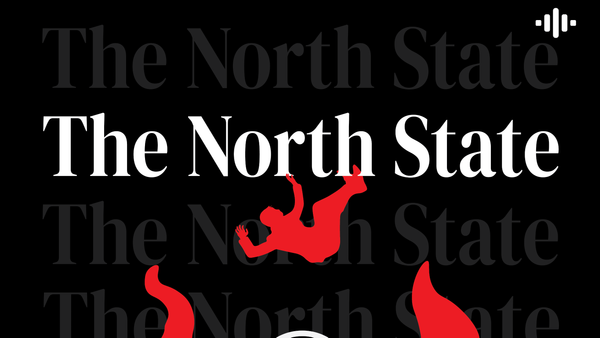The Sinophobic Hoedown
In a banner month for anti-China rhetoric, Canada pulls out all the stops

Hoo boy.
Weeks after the Canadian government authorized NORAD to shoot down what was possibly a hobbyist group’s balloon over fears of Chinese surveillance, the country has returned to the yellow-peril well. Canadian media and politicians have been bristling with rage since The Globe and Mail broke a story that CSIS, our nation’s spy agency approved to break laws in other countries, warned the federal Liberals that GTA area politician Michael Chan was involved in a Chinese influence scheme. Then, according to Global News, the Liberals reportedly ignored CSIS warnings that Liberal MP Han Dong, who won his seat in the 2019 federal election, was Beijing’s preferred candidate. CSIS alleges that Trudeau ignored warnings to rescind support to Dong, though this has since been disputed by Justin Trudeau.
This all came shortly after a previous story by The Globe and Mail investigating the apparent plot by China to interfere in the 2021 Federal Election.
The fervor has been amplified by the typical worst voices in media. Brian Lilley from the Toronto Sun, the federal Conservatives, and predictably The Epoch Times have all recoiled in horror at alleged Chinese influence in Canadian politics and elections. Predictably, the National Post is featuring columns declaring “Trudeau junior’s professed admiration for China’s ‘basic dictatorship’ was not just a slip of the tongue.”
Unsurprisingly, The Globe and Mail is leading the charge on this rhetoric since they broke the initial CSIS story about Chan. They have since published stories about a “web of Chinese influence,” and editorials comparing Trudeau to Donald Trump. In one particularly absurd passage from a piece that demands he stand up to China, they write “Justin Trudeau is awfully tough on suspected Chinese spy balloons… If only Mr. Trudeau were as quick to pull the trigger on Chinese interference in Canadian elections.”
Now, TikTok, owned by the Chinese company ByteDance, has been banned from government devices due to privacy concerns. The initial announcement then led the federal Conservative leader Pierre Poilievre and federal NDP leader Jagmeet Singh to take a hiatus from the platform. This continues to add fuel to the anti-China fire brewing in the country.
There is an inherent futility of refuting this latest fear-mongering that haunts the country. It’s likely that anyone reading this piece is already skeptical of this news media blitz, but nonetheless it still must face push-back. Especially to scrutinize the claims of Chinese interference so boldly declared by CSIS employees.
The fact that CSIS has authority over the subject is the most striking takeaway from the media circus. In The Globe and Mail piece on election interference, CSIS documents lay out the plan by the dreaded “Chinese Communist Party".
The documents say the Chinese Communist Party leadership in Beijing was “pressuring its consulates to create strategies to leverage politically [active] Chinese community members and associations within Canadian society.” Beijing uses Canadian organizations to advocate on their behalf “while obfuscating links to the People’s Republic of China.”
The clear intent from this approach being made public is that Chinese-Canadians and their communities are to be viewed with suspicion. How can one read this and not have the feeling of a poisoned well?
The rest of the article relays information from CSIS documents about representatives of China influencing Chinese communities to vote for Liberal candidates, as well as accusations of a vague disinformation campaign from the Chinese government. The urgency is stressed in foreboding language and litanies of unnamed sources. For example, when supporting their claims of interference, an anonymous CSIS source cites an “unnamed Chinese consular official [who] said the loss of Mr. Chiu and fellow Conservative MP Alice Wong substantiated the growing electoral influence of mainland Chinese-Canadians.” Even if this claim were true, this statement does not notate Chinese influence successes, just that of Chinese-Canadians, who have a right to vote and campaign for candidates they prefer.
The subject of another piece, and the CSIS investigation that informed it, was former Ontario Liberal cabinet minister Michael Chan, who now serves as the deputy mayor of Markham. Chan is familiar with The Globe and Mail publishing accusations of Chinese interference, as he was the subject of a 2015 profile piece. This came shortly after the paper reported CSIS’ investigation into Chan’s Chinese ties. The accusations in the 2015 article read as a laundry list of grievances filed by the most ardent anti-China voices.
Mr. Chan supported the deal between the Toronto District School Board and the Confucius Institute, the controversial Mandarin language and culture program run by the Chinese government. He was quoted making florid, pro-Beijing comments to a state-run Chinese newspaper at Tiananmen Square in which he repeatedly referred to China as "my motherland." He has also hired two aides with controversial pasts: one who has a history of organizing protests and counterprotests that advance the Chinese agenda, the other who was implicated in censoring anti-China sentiment from a Chinese-language daily newspaper.
What makes the Confucius Institute controversial? The piece does not say. Should we similarly scrutinize all politicians who speak fondly of their ethnic homeland in state-affiliated media? Certainly the BBC would love to hear glowing sentiments from British immigrants to Canada. This double standard is clear when examined critically.
The background is necessary because much of the same concerns are touted in the latest piece, with flimsy evidence to boot. The sources in the newer article claim that Chan met with two people considered by CSIS to be part of Chinese intelligence. The first, diplomat Zhao Wei, is referred to by an anonymous source as a “suspected intelligence actor.” The other is Zhuang Yaodong, categorized as “Beijing’s former vice-consul-general.”
When placed under inspection, these tenuous connections could only be considered damning proof by those already poisoned by rabid anti-China sentiments. Chan himself offers a perfectly reasonable explanation for these meetings within the piece.
“Meetings to discuss business and trade between Consular officials and Canadians, politicians or otherwise, are a common practice,” he said. “Just in case you were not aware, I met a few days ago with the Deputy Consul-General from China in Toronto and Mr. Wei Zhao.”
The story here only carries weight when one considers the values and methods of CSIS to be beyond reproach. Considering the inquiry into the Emergency Act revealed that the convoy occupation received a steady stream of information from CSIS, while the agency itself refused to categorize them as a threat, that notion should be an absurd pill to swallow. Yet that’s not the path our media and politicians have taken. Instead, CSIS has appeared to news media, The Globe and Mail in particular, as a neutral actor with a credible stream of info about Chinese interference.
As for privacy concerns surrounding TikTok, it is true that the data it gathers is immense and a concern for privacy, but it’s far from the only social media app with privacy concerns. In this regard, and in the context of the CSIS stories, motivations to ban the app from government devices are not strictly about privacy.
The fury has since progressed in a predictable fashion. Singh has called for a public inquiry to dissect the issue. Serious voices have stressed that CSIS’ concerns are to be taken seriously, citing a “full-blown, five-alarm national security crisis.” Poilievre has called for a public “foreign agents registry.” If this is in response to certain aspects from the latest round of reporting, it’s reasonable to assume that this theoretical registry will require Chinese community groups in Canada to sign on.
It’s not a leap of faith to believe from these leaked reports that rogue CSIS employees, or perhaps the agency itself, are intentionally releasing information to manufacture a crisis for the Trudeau government. On February 28th, The Globe and Mail, the agency’s apparent go-to for releasing internal reports on China, published an article about China’s plans to donate to the Pierre Elliott Trudeau Foundation. This 2015 plot to target the newly-elected Prime Minister of Canada, according to CSIS, was justified publicly at the time by billionaire political advisor Zhang Bin.
[T]he Trudeau Foundation and the University of Montreal announced that Mr. Zhang and another wealthy Chinese businessman, Niu Gensheng, would donate $1-million “to honour the memory and leadership” of Pierre Trudeau, who as prime minister opened diplomatic relations with China in 1970.
Absolutely abhorrent.
This stream of anti-China rhetoric illegally drip fed from Canada’s intelligence agency is a dangerous escalation in sinophobia. The reports have provided ammunition for right-wing hawks to claim Trudeau is soft on the rival power, or even in their pocket. Conversely, it also allows the NDP to commit to Canadian ideals and jingoism by rallying against the economic superpower.
It would be absurd to claim that China has not planned to influence relations with other countries in any capacity, as that is the primary function of any nation-state’s foreign policy, but the latest uproar speaks to much more than unsavoury actions. With the escalating rhetoric against China, the jingoism of the new cold war has been ratcheted up to dangerous levels. Mounting pressure will build for Trudeau to prove his commitment to Canada by either agreeing to a public inquiry, by creating a public registry in the vein of Poilievre, or other harsh measures. CSIS, for its part, shows no sign of stopping the leaks about Chinese interference to the press. The effect this has on Trudeau’s image is already being felt. More reactionary elements are useing the yellow-peril narrative to bolster their political capital. This is a dangerous new step in antagonism towards China.





